Transcranial Magnetic Stimulation (TMS) Therapy
What is TMS?
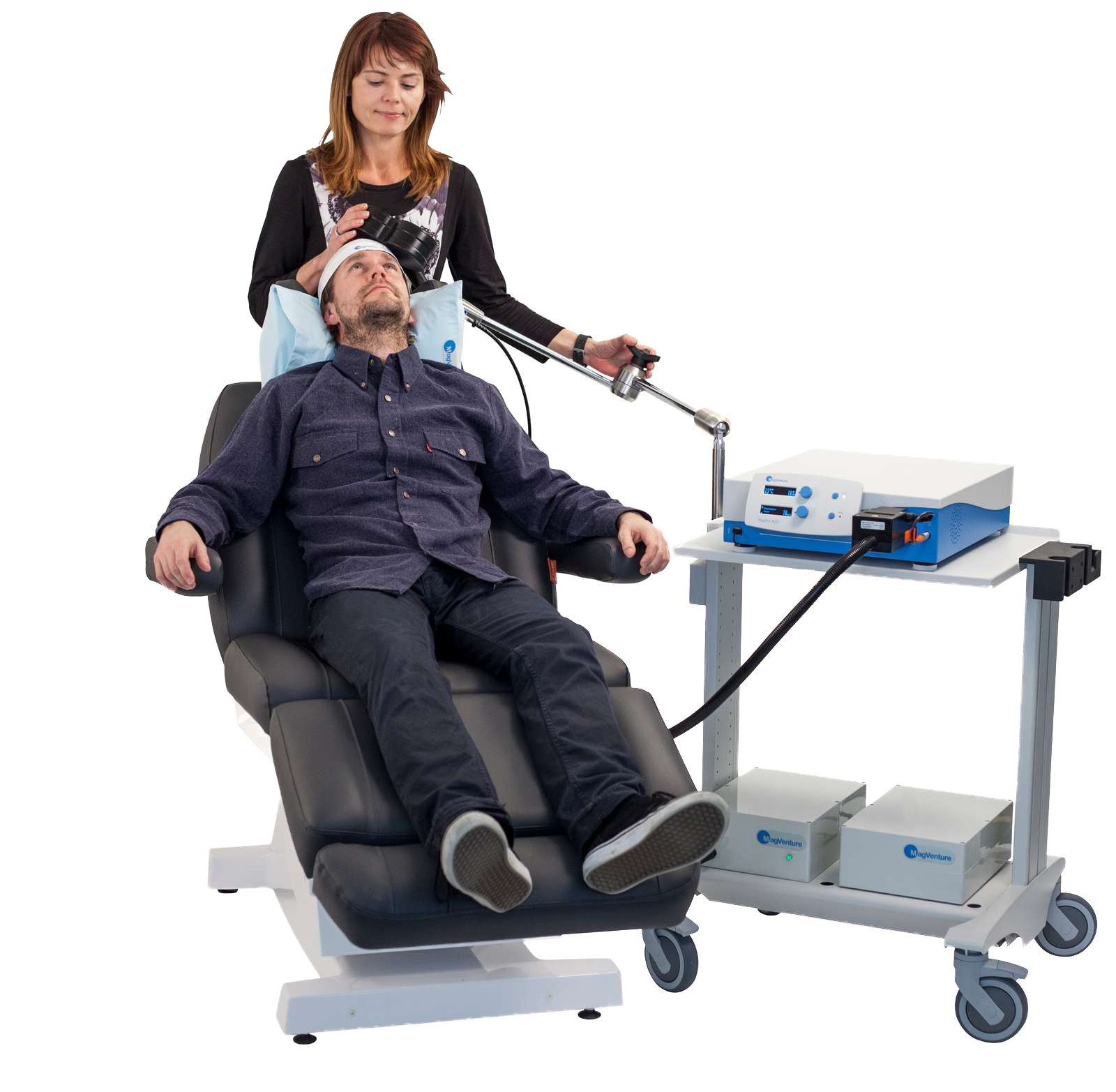
Transcranial Magnetic Stimulation, or TMS, Therapy is indicated for the treatment of patients with Major Depressive Disorder (MDD) who have failed to receive satisfactory improvement from antidepressant medications. FDA approved in 2008, TMS uses a highly targeted pulsed magnetic field, similar in type and strength to those produced by a magnetic resonance imaging (MRI) machine, to stimulate cortical neurons.
Treatment Program
- TMS Treatments Take 3 to 19 Minutes Each
- Does Not Require Medication
- TMS is Non-invasive & Does Not Require Sedation
- Most Insurances Cover TMS for Treatment of Depression
- TMS treatments can take 3 (Theta Burst) to 19 minutes each a day, five days a week, for 5 to 6 weeks for a total of 30 treatments. There is no difference in treatment for either time. During the treatment you are awake, and our office has TV provided to watch Netflix, Youtube, or Hulu. If TV is not your style, you can listen to music or read a book. If anything else, the TMS treatments could be a great time to practice meditation.
- The TMS treatment only involves the sessions at the office. There is no need for additional medication to be supplied. During the treatment, patients begin to notice that they can stop taking antidepressants. In some cases we have had in our office, some patients who were on more than 10 different medications significantly reduced the number of medications they needed, and in some cases they stopped taking medications all together.
- The TMS procedure does not require any machinery to place in the body, surgically or otherwise. The magnetic coil is put on the left prefrontal cortex where it is barely touching the patient’s head and tightened in place so there is no weight that the head bares. The magnetic coil works by inducing a magnetic field. The magnetic coil is non invasive, so there is no need for the patient to be sedated or be administered anesthesia.
- Insurance companies are covering TMS as a treatment of depression after it became approved by the FDA in 2008.
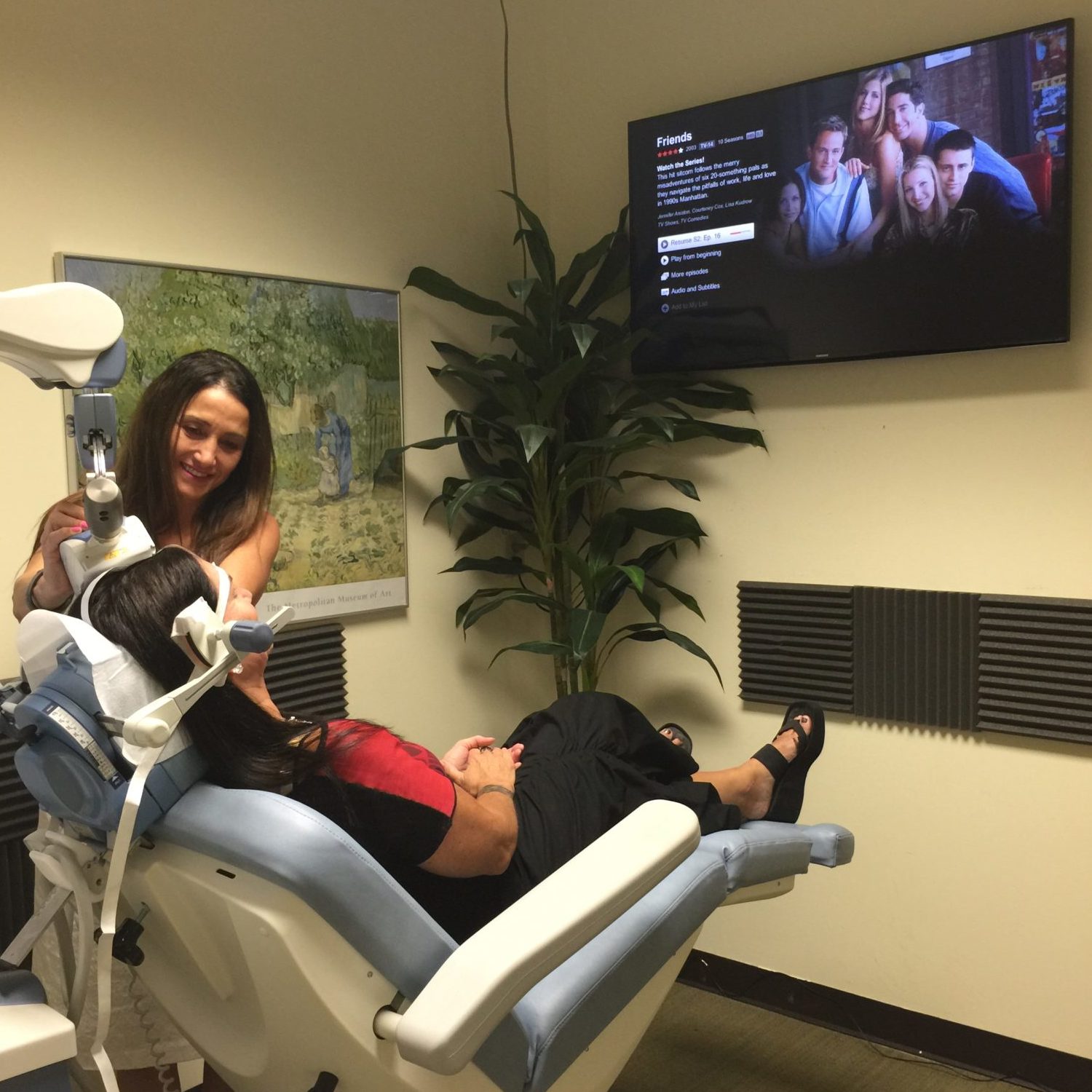
Clinical Results
of Our Patients Achieved Full Remission
of Our Patients Experienced Positive Results
At Awakenings KC, we have had over 300 patients go through the TMS treatment since 2013. Of those who did it, 66% achieved full remission from depression and 90% had a positive response to the TMS treatment.
Other Conditions TMS can Treat
While TMS is FDA approved only for Major Depressive Disorder (MDD), TMS can treat a variety of mental health, substance abuse, and pain conditions
Mental Health Conditions Treated by TMS
- Schizophrenic Auditory Hallucinations
- Obsessive Compulsive Disorder (OCD)
- Generalized Anxiety Disorder (GAD)/Anixety
- Panic Disorders
- Post Traumatic Stress Disorder (PTSD)
- Bipolar Depression
- Bipolar Mania
Neurological Health Conditions Treated by TMS
- Alzheimer
- ALS
- Tinnitus
- Mal de Debarquement Syndrome (MdDS)
- Multiple Sclerosis
- Migraines
- Parkinson’s
- Epilepsy
- Essential Tremors
Pain Conditions Treated by TMS
- Chronic Pain
- Complex Regional Pain
- Post Operative Pain
- Post Stroke Pain
- Migraines
- Neuropathic Pain
- Spinal Cord Injury
Substance Abuse Conditions Treated by TMS
- Nicotine Consumption & Cravings
- Alcohol Abuse & Cravings
- Methamphetamine Abuse & Cravings
- Cocaine Abuse &Cravings
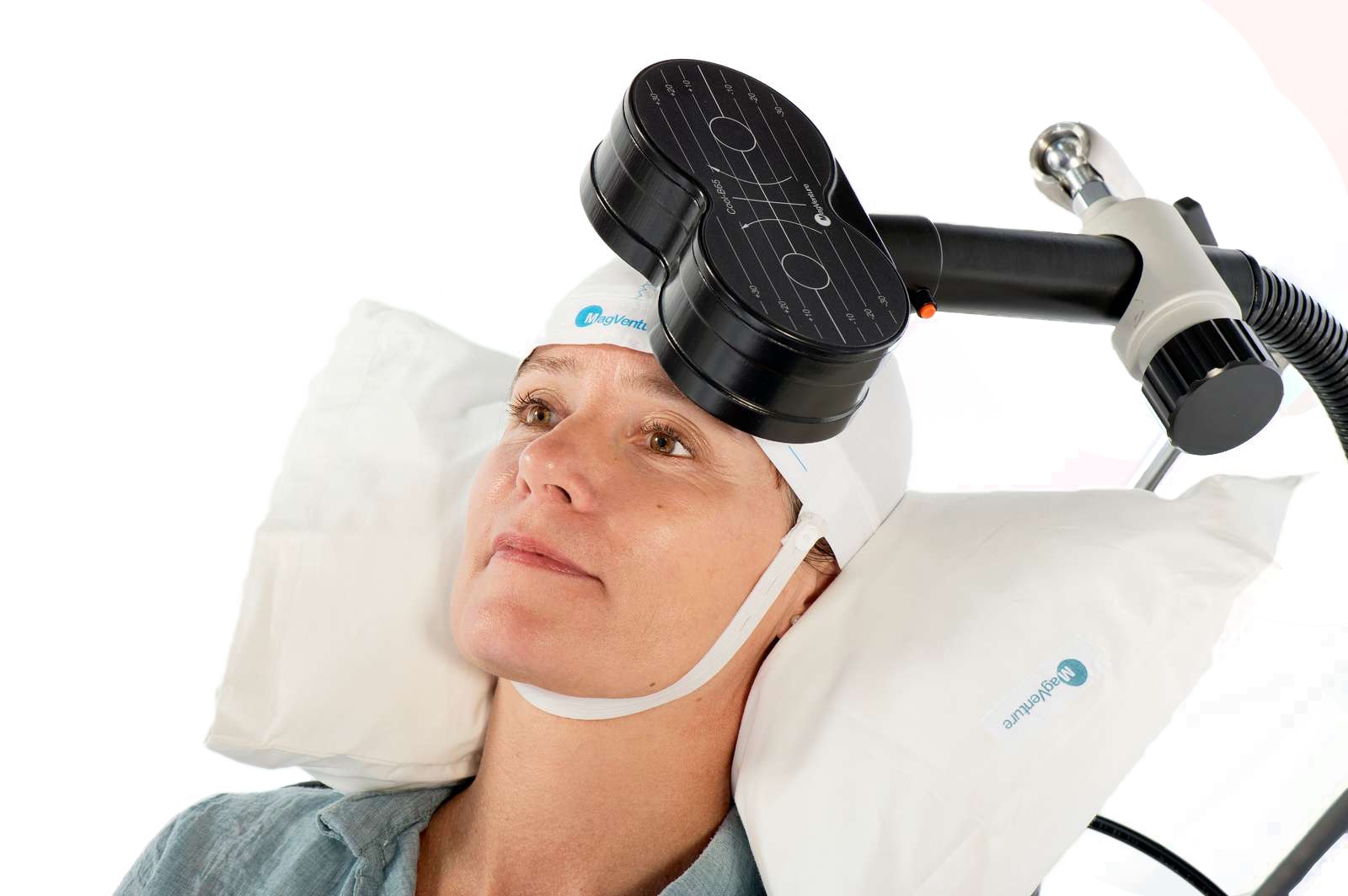
Side Effects of TMS Compared to Medication
If medication is causing you many side effects, TMS is alternative to all the side effects included with antidepressants. The side effects[4] that could occur during or after the treatment are:
- discomfort or pain on the scalp
- Headache
- Tingling of facial muscles
- Lightheadednesses
There is small risk of these side effects. If there are any of these side effects, they improve after each session. Some serious side effects that are extremely rare are:
- Seizures (0.02%)
We have had no case of any seizure in our office.
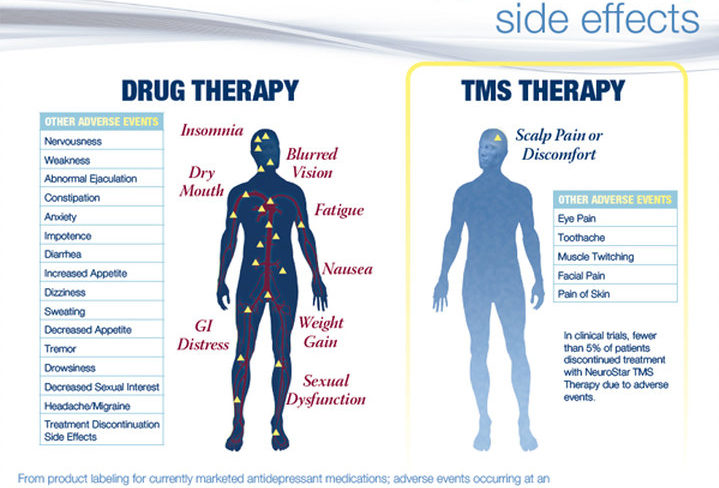
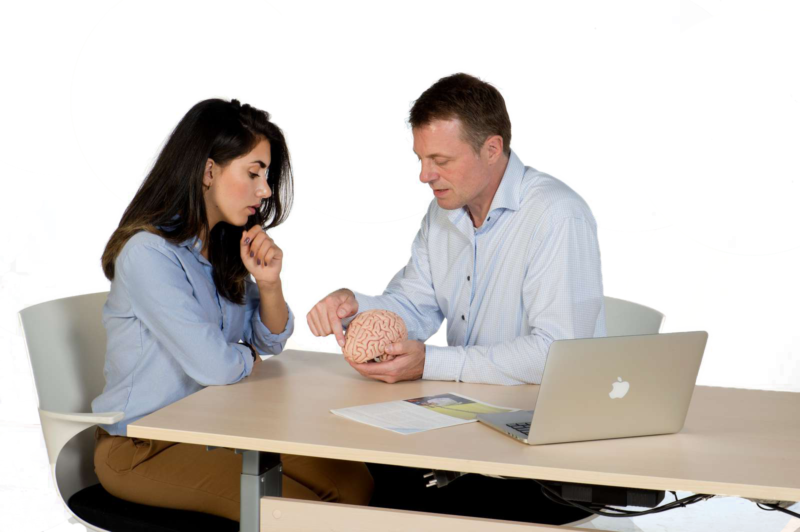
How TMS Works
Depression (major depressive disorder) is a common and serious medical illness that negatively affects how you feel, the way you think, and how you act.[1] The causes of depression are complex in nature. Depression can be cause by one of or any combination of the following:
- faulty mood regulation
- genetic predisposition
- stressful or traumatic events
- substance abuse
Antidepressants are used to improve mood regulation, but antidepressant effectiveness is quite low.[2]
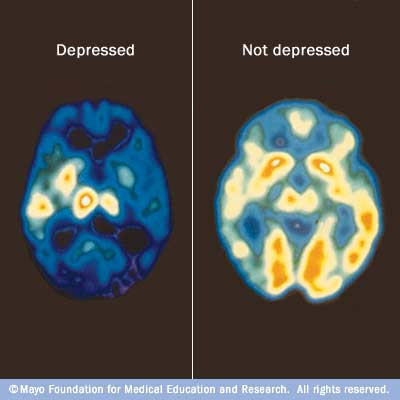
Comparison of brain activity with depression and without depression.
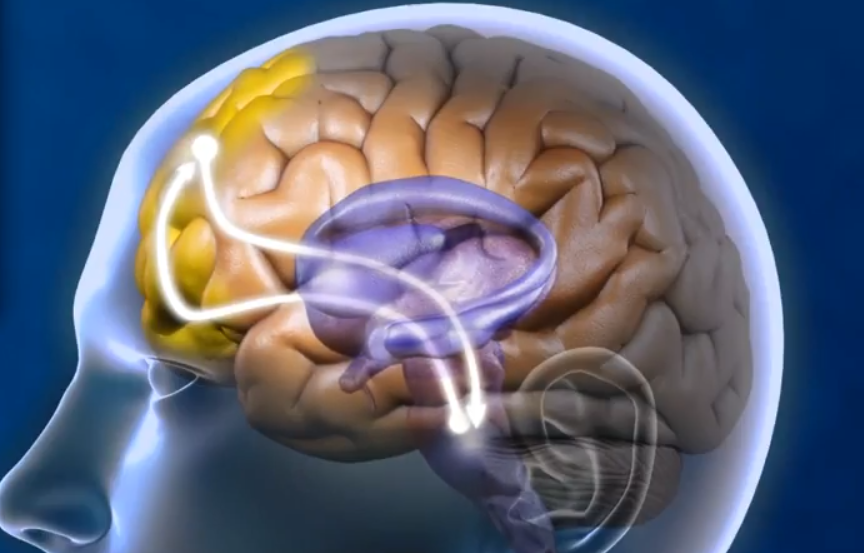
Neuronal Pathway for Neurotransmitter from the left prefrontal cortex
Popular convention would have you believe that emotions come from the heart, but emotion and mood regulation takes place in the brain. Researchers believe that — more important than levels of specific brain chemicals — nerve cell connections, nerve cell growth, and the functioning of nerve circuits have a major impact on depression.[3] Neurotransmitters in the brain travel through neuronal pathways to regulate mood. When depressed, these neurotransmitters cannot travel through the neuronal pathway regularly and disrupts communication in the brain for mood.
With TMS, a magnetic field is used to repair the neuronal pathway and stimulate the neurotransmitters, so the brain’s mood function can perform correctly.
TMS Patient Testimonials
I have found the team at Awakenings to be courteous, compassionate, very helpful, and professional I was treated with TMS and have found it to be very successful to help my recovery from deep Depression.
Dr. Davila is the best Psychiatrist in her field in my opinion and I’ve seen a few, along with a professional kind staff. When I find myself in a jam with either a script or a visit there is always a quick solution with this office. I highly recommend Dr. Davila!
I want to thank the staff at Awakenings, they were wonderful. The TMS program helped me tremendously. I am a new person that I didnt think would ever come back. Special thanks to Bev, Charles and Dr. Davila for their patience with me.


